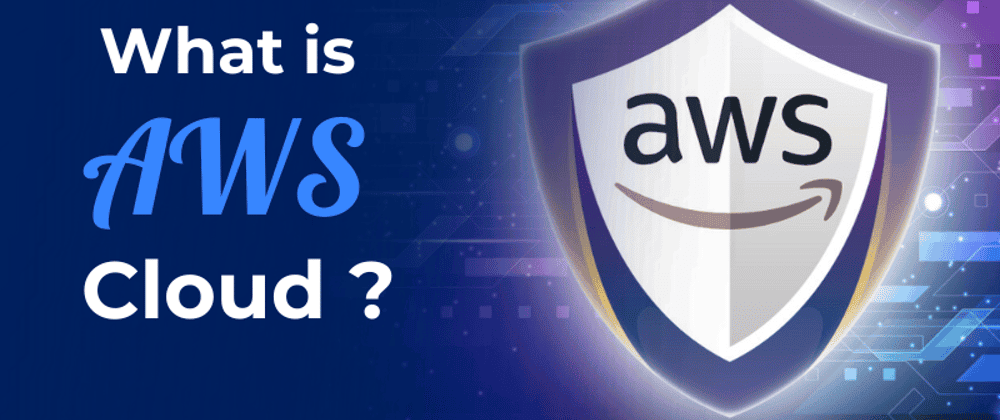Unveiling the BSD+Patent License: A Powerful Hybrid Approach
Unveiling the BSD+Patent License: A Powerful Hybrid Approach
Navigating the complexities of open-source licensing can be challenging. This post delves into the BSD+Patent License, a unique model that attempts to balance the freedoms of open source with the protections of patent law. We'll explore its key features, advantages, disadvantages, and its position within the broader open-source licensing landscape.
Introduction
The open-source world thrives on collaboration, but the threat of patent litigation looms large. The BSD+Patent License directly addresses this concern by extending the traditional BSD license with a specific patent clause. This innovative approach aims to foster a collaborative environment while safeguarding intellectual property. We will compare it to other popular licenses like the MIT License (known for its permissiveness) and the GNU GPL (known for its copyleft nature), highlighting the nuanced differences and implications for developers.
Key Insights
The BSD+Patent License offers a compelling blend of permissiveness and legal safeguards. Its core strength lies in its explicit patent grant, providing a shield against potential lawsuits, thus making it attractive to both startups and established companies. Let's examine some key aspects:
Innovation Without Legal Overhead
By adding a patent protection clause to the established BSD framework, this license aims to deter patent trolls and provide a clearer legal path for innovation. This additional protection reduces the legal risk associated with open-source contributions.
Community Support and Adoption
The license has gained traction within the developer community, driven by the need for a balance between open collaboration and legal protection. Discussions on platforms like Hacker News and Stack Overflow underscore the importance of robust legal mechanisms in the open-source ecosystem.
Challenges and Compatibility
While beneficial, the BSD+Patent License isn't without its challenges. The patent clause itself could introduce ambiguities when combining code from projects under different licenses. It might also complicate dual-licensing strategies where the same code is offered under both open source and commercial licenses. Careful consideration and legal advice are crucial when implementing this license.
Historical Context and Future Prospects
The license emerged as a response to the growing concerns about patent abuse in the software industry. Its ongoing adoption reflects a need for sustainable open-source funding models. The original article provides a thorough comparison table, contrasting BSD+Patent with other licenses across various factors, including compensation models and flexibility.
Conclusion
The BSD+Patent License represents a significant step in addressing the evolving needs of open-source projects. It offers a practical approach to balancing collaborative freedoms with legal protection against patent infringement. Although compatibility challenges and potential ambiguities remain, its innovative blend of permissiveness and legal safeguards has attracted considerable attention and offers a strong alternative for developers concerned about intellectual property protection.
Understanding the intricacies of open-source licensing is paramount for any developer. The BSD+Patent License provides a robust option that supports innovation within a legally secure framework. Further research into licensing models and community discussions will remain crucial in fostering a thriving and sustainable open-source ecosystem.
Related Articles
Software Development
Unveiling the Haiku License: A Fair Code Revolution
Dive into the innovative Haiku License, a game-changer in open-source licensing that balances open access with fair compensation for developers. Learn about its features, challenges, and potential to reshape the software development landscape. Explore now!
Read MoreSoftware Development
Leetcode - 1. Two Sum
Master LeetCode's Two Sum problem! Learn two efficient JavaScript solutions: the optimal hash map approach and a practical two-pointer technique. Improve your coding skills today!
Read MoreBusiness, Software Development
The Future of Digital Credentials in 2025: Trends, Challenges, and Opportunities
Digital credentials are transforming industries in 2025! Learn about blockchain's role, industry adoption trends, privacy enhancements, and the challenges and opportunities shaping this exciting field. Discover how AI and emerging technologies are revolutionizing identity verification and workforce management. Explore the future of digital credentials today!
Read MoreSoftware Development
Unlocking the Secrets of AWS Pricing: A Comprehensive Guide
Master AWS pricing with this comprehensive guide! Learn about various pricing models, key cost factors, and practical tips for optimizing your cloud spending. Unlock significant savings and efficiently manage your AWS infrastructure.
Read MoreSoftware Development
Exploring the GNU Verbatim Copying License
Dive into the GNU Verbatim Copying License (GVCL): Understand its strengths, weaknesses, and impact on open-source collaboration. Explore its unique approach to code integrity and its relevance in today's software development landscape. Learn more!
Read MoreSoftware Development
Unveiling the FSF Unlimited License: A Fairer Future for Open Source?
Explore the FSF Unlimited License: a groundbreaking open-source license designed to balance free software distribution with fair developer compensation. Learn about its origins, strengths, limitations, and real-world impact. Discover how it addresses the challenges of open-source sustainability and innovation.
Read MoreSoftware Development
Conquer JavaScript in 2025: A Comprehensive Learning Roadmap
Master JavaScript in 2025! This comprehensive roadmap guides you through fundamental concepts, modern frameworks like React, and essential tools. Level up your skills and build amazing web applications – start learning today!
Read MoreBusiness, Software Development
Building a Successful Online Gambling Website: A Comprehensive Guide
Learn how to build a successful online gambling website. This comprehensive guide covers key considerations, technical steps, essential tools, and best practices for creating a secure and engaging platform. Start building your online gambling empire today!
Read MoreAI, Software Development
Generate Images with Google's Gemini API: A Node.js Application
Learn how to build an AI-powered image generator using Google's Gemini API and Node.js. This comprehensive guide covers setup, API integration, and best practices for creating a robust image generation service. Start building today!
Read MoreSoftware Development
Discover Ocak.co: Your Premier Online Forum
Explore Ocak.co, a vibrant online forum connecting people through shared interests. Engage in discussions, share ideas, and find answers. Join the conversation today!
Read MoreSoftware Development
Mastering URL Functions in Presto/Athena
Unlock the power of Presto/Athena's URL functions! Learn how to extract hostnames, parameters, paths, and more from URLs for efficient data analysis. Master these essential functions for web data processing today!
Read MoreSoftware Development
Introducing URL Opener: Open Multiple URLs Simultaneously
Tired of opening multiple URLs one by one? URL Opener lets you open dozens of links simultaneously with one click. Boost your productivity for SEO, web development, research, and more! Try it now!
Read More
Software Development, Business
Unlocking the Power of AWS: A Deep Dive into Amazon Web Services
Dive deep into Amazon Web Services (AWS)! This comprehensive guide explores key features, benefits, and use cases, empowering businesses of all sizes to leverage cloud computing effectively. Learn about scalability, cost-effectiveness, and global infrastructure. Start your AWS journey today!
Read MoreSoftware Development
Understanding DNS in Kubernetes with CoreDNS
Master CoreDNS in Kubernetes: This guide unravels the complexities of CoreDNS, Kubernetes's default DNS server, covering configuration, troubleshooting, and optimization for seamless cluster performance. Learn best practices and avoid common pitfalls!
Read MoreSoftware Development
EUPL 1.1: A Comprehensive Guide to Fair Open Source Licensing
Dive into the EUPL 1.1 open-source license: understand its strengths, challenges, and real-world applications for fair code. Learn how it balances freedom and developer protection. Explore now!
Read MoreSoftware Development
Erlang Public License 1.1: Open Source Protection Deep Dive
Dive deep into the Erlang Public License 1.1 (EPL 1.1), a crucial open-source license balancing collaboration and contributor protection. Learn about its strengths, challenges, and implications for developers and legal teams.
Read MoreSoftware Development
Unlocking Kerala's IT Job Market: Your Path to Data Science Success
Launch your data science career in Kerala's booming IT sector! Learn the in-demand skills to land high-paying jobs. Discover top data science courses & career paths. Enroll today!
Read More
Software Development
Automation in Software Testing: A Productivity Booster
Supercharge your software testing with automation! Learn how to boost productivity, efficiency, and accuracy using automation tools and best practices. Discover real-world examples and get started today!
Read MoreSoftware Development
Mastering Anagram Grouping in JavaScript
Master efficient anagram grouping in JavaScript! Learn two proven methods: sorting and character counting. Optimize your code for speed and explore key JavaScript concepts like charCodeAt(). Improve your algorithms today!
Read More
Software Development
Mastering Kubernetes Deployments: Rolling Updates and Scaling
Master Kubernetes Deployments for seamless updates & scaling. Learn rolling updates, autoscaling, and best practices for high availability and efficient resource use. Improve your application management today!
Read More